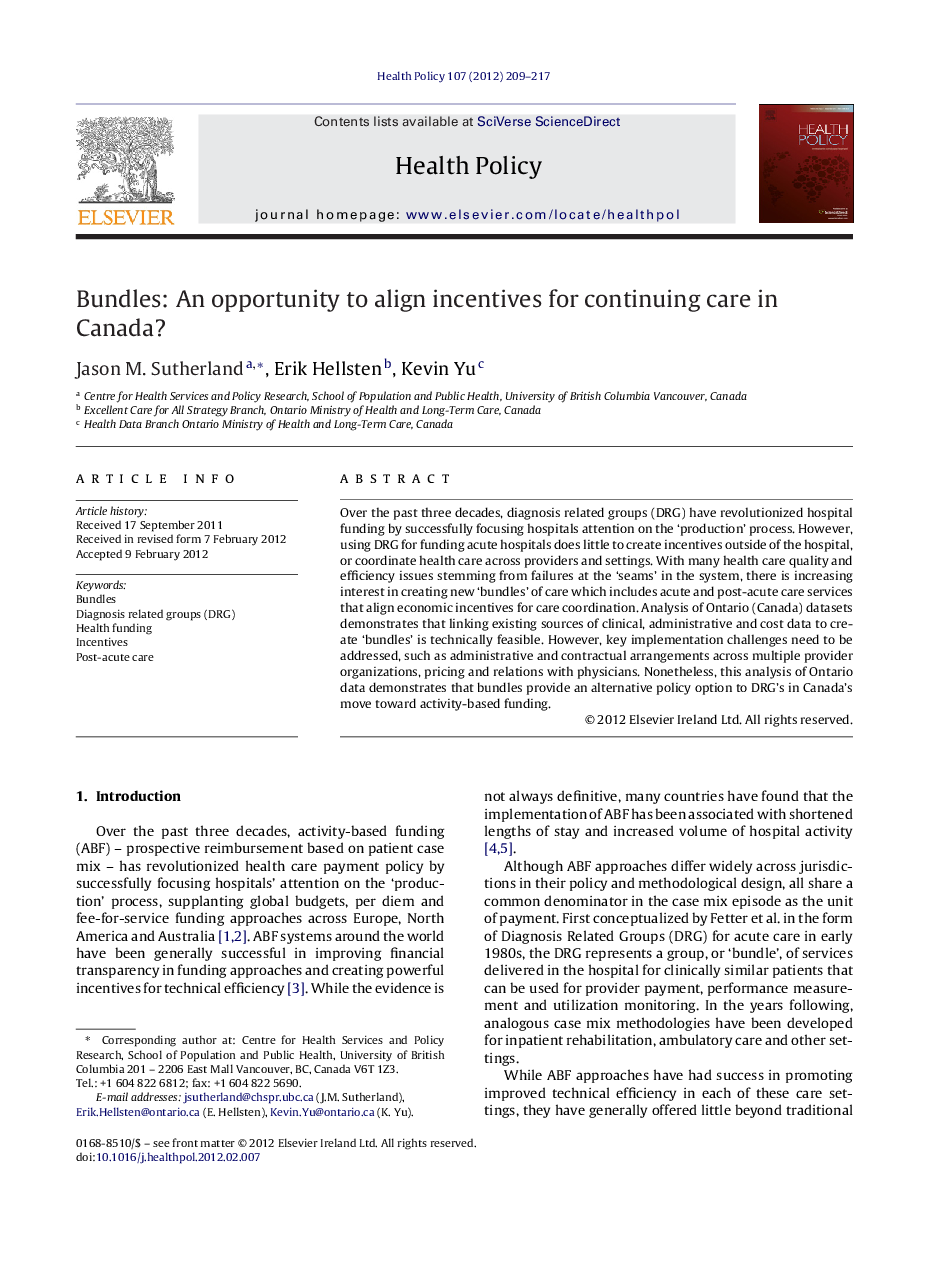| Article ID | Journal | Published Year | Pages | File Type |
|---|---|---|---|---|
| 6240123 | Health Policy | 2012 | 9 Pages |
Over the past three decades, diagnosis related groups (DRG) have revolutionized hospital funding by successfully focusing hospitals attention on the 'production' process. However, using DRG for funding acute hospitals does little to create incentives outside of the hospital, or coordinate health care across providers and settings. With many health care quality and efficiency issues stemming from failures at the 'seams' in the system, there is increasing interest in creating new 'bundles' of care which includes acute and post-acute care services that align economic incentives for care coordination. Analysis of Ontario (Canada) datasets demonstrates that linking existing sources of clinical, administrative and cost data to create 'bundles' is technically feasible. However, key implementation challenges need to be addressed, such as administrative and contractual arrangements across multiple provider organizations, pricing and relations with physicians. Nonetheless, this analysis of Ontario data demonstrates that bundles provide an alternative policy option to DRG's in Canada's move toward activity-based funding.
